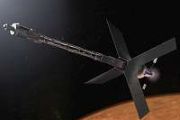
Copernical Team
Ancient deltas reveal vast Martian ocean across northern hemisphere
 Using high resolution images from several Mars orbiters, an international team led by the University of Bern has identified a system of fan deltas in southeast Coprates Chasma that record the highest stand of an ancient ocean in Mars Valles Marineris. The geomorphologic structures, preserved today as scarp fronted deposits near the lower end of the canyon system, closely resemble classic river d
Using high resolution images from several Mars orbiters, an international team led by the University of Bern has identified a system of fan deltas in southeast Coprates Chasma that record the highest stand of an ancient ocean in Mars Valles Marineris. The geomorphologic structures, preserved today as scarp fronted deposits near the lower end of the canyon system, closely resemble classic river d Ancient impact may explain moons contrasting sides
 For decades scientists have puzzled over why the moons two hemispheres look so different despite sharing a common origin in the early solar system.
The near side that always faces Earth is dominated by dark flat volcanic plains called maria that create the familiar man in the moon pattern seen with the naked eye. In contrast the far side has a much thicker crust and appears as a rugged hea
For decades scientists have puzzled over why the moons two hemispheres look so different despite sharing a common origin in the early solar system.
The near side that always faces Earth is dominated by dark flat volcanic plains called maria that create the familiar man in the moon pattern seen with the naked eye. In contrast the far side has a much thicker crust and appears as a rugged hea Tiny Mars' big impact on Earth's climate
 At half the size of Earth and one-tenth its mass, Mars is a featherweight as far as planets go. And yet, new research reveals the extent to which Mars is quietly tugging on Earth's orbit and shaping the cycles that drive long-term climate patterns here, including ice ages.
Stephen Kane, a professor of planetary astrophysics at UC Riverside, began this project with doubts about recent studi
At half the size of Earth and one-tenth its mass, Mars is a featherweight as far as planets go. And yet, new research reveals the extent to which Mars is quietly tugging on Earth's orbit and shaping the cycles that drive long-term climate patterns here, including ice ages.
Stephen Kane, a professor of planetary astrophysics at UC Riverside, began this project with doubts about recent studi PH-1 test flight advances Chinese reusable suborbital spacecraft plans
 A Chinese suborbital spacecraft designed for reusable operations and future space tourism has completed a key test flight, marking a new step in the country's commercial space ambitions.
The vehicle, designated PH-1, is developed by Beijing-based commercial aerospace company CAS Space and is intended to support low cost scientific experiments in microgravity as well as pave the way for pas
A Chinese suborbital spacecraft designed for reusable operations and future space tourism has completed a key test flight, marking a new step in the country's commercial space ambitions.
The vehicle, designated PH-1, is developed by Beijing-based commercial aerospace company CAS Space and is intended to support low cost scientific experiments in microgravity as well as pave the way for pas SpaceX knocks 3rd Space Coast launch of 2026: Readies for Crew-11 return
Verifying that you are not a bot
10 asteroids named to honour ESA’s role in Planetary Defence

ATD water-cooled throttleable engine firing
 Video:
00:01:53
Video:
00:01:53
Romanian company ATD Aerospace RS SRL is developing a 10 kN rocket engine that can be re-ignited and adjust its thrust. This builds on the 1 kN engine they developed with support from the European Space Agency (ESA).
Before working with ESA, ATD had already created several engines in the 0.5–1 kN range, which paved the way for their later developments. This project is part of ESA’s Future Launchers Preparatory Programme (FLPP), that helps develop the technology for future for space transportation systems. By conceiving, designing and investing in technology that doesn’t exist yet, this programme is reducing the risk entailed
NASA targets Artemis II rollout to pad, details launch options
Verifying that you are not a bot
SpaceX launches 2nd Space Coast mission of 2026
Verifying that you are not a bot
Superheavy-lift rockets like SpaceX's starship could transform astronomy by making space telescopes cheaper
Verifying that you are not a bot
































